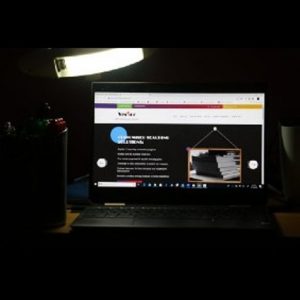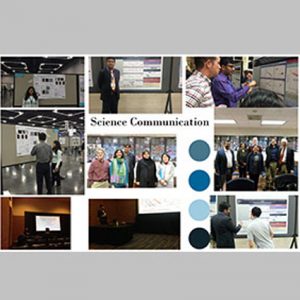The Institute:
Vector Institute of Physics is an educational start-up founded by Physicists who are truly passionate about teaching the concepts of Science and Mathematics with an emphasis on efficient problem solving from Foundation/Secondary level to Advanced levels in Science and Engineering. The institute offers aptitude-based customized career counselling for aspiring Scientists and Engineers to align the career goals of prospective students with available opportunities. Science communication seminars, career-counselling, and research presentation workshops are also offered as a part of the services at Vector Institute of Physics.
Meet Our Faculty:
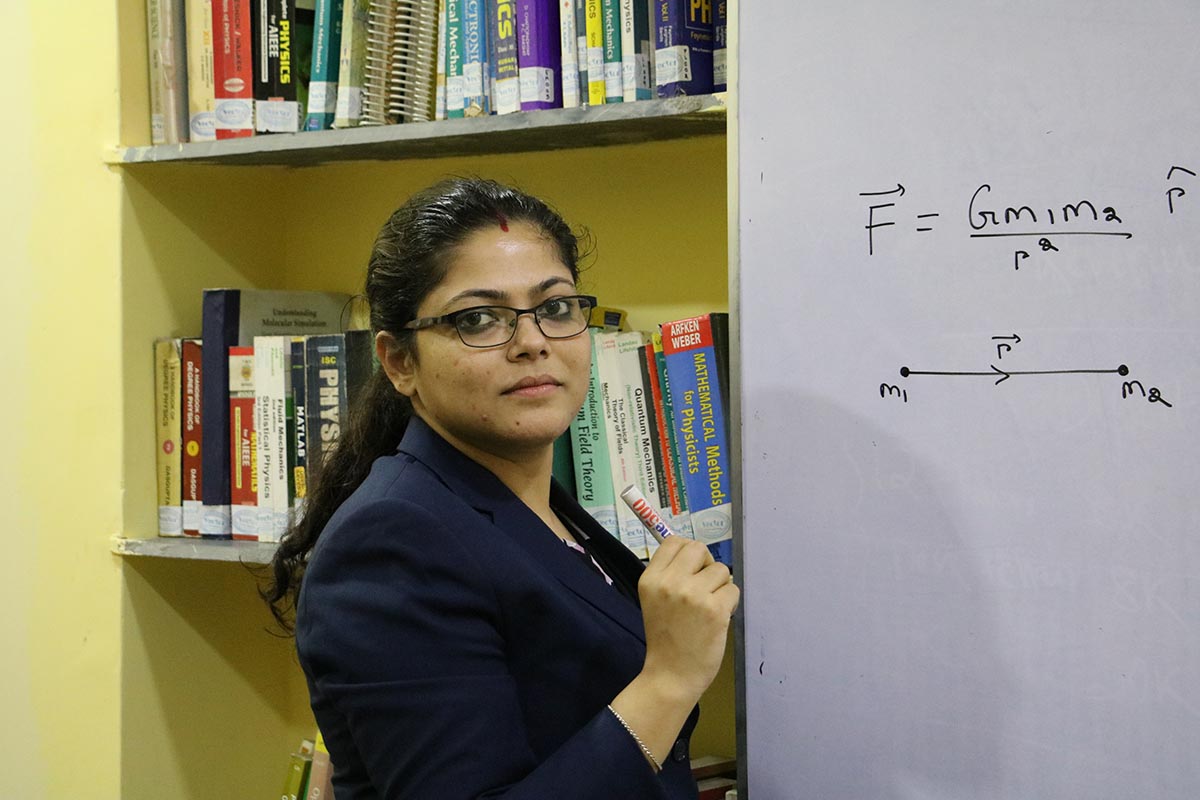
Co-founder, Faculty and Mentor at Vector Institute of Physics
(Ex-Intel Corporation | Ph.D. Physics, University of Illinois | M.Sc. Physics, Indian Institute of Technology Madras | B.Sc. Physics Honors, Lady Brabourne College, University of Calcutta | Higher Secondary/Madhyamik, Gokhale Memorial Girls’ School). For an overview of her research, please click on the Google Scholar link below.
Dr. Arijita Mukherjee Chakraborty (Ph.D.), completed her schooling from Gokhale Memorial Girls’ School, and was in the top 1% of her graduating class. She attained her Bachelors’ in Physics (B.Sc. Physics Honors) from Lady Brabourne College, University of Calcutta followed by Masters’ in Physics (M.Sc. Physics) from Indian Institute of Technology Madras (IIT Madras). Her master’s thesis project focused on Experimental High Energy Physics, extensively using C++ and ROOT programming languages to evaluate the efficiency of prototype neutrino detector, collaborating with the India Based Neutrino Observatory (INO collaboration).
After her M.Sc. completion, Dr. Mukherjee Chakraborty was awarded doctorate in physics (Ph.D. Physics) by University of Illinois (USA). Her Ph.D. thesis research project focused on characterization of battery cathode systems using cutting edge analytical scanning transmission electron microscopy (STEM) techniques, collaborating with fellow scientists in the Joint Center for Energy Storage Research (JCESR). She led the interdisciplinary liquid cell transmission electron microscopy efforts from her lab, designing graphene and Boron nitride liquid cells for in-situ imaging/spectroscopy of nano-bio interfaces as well as studying chemical reactions dynamically.
During the course of her Ph.D., Dr. Mukherjee Chakraborty presented her research in highly prestigious, international conferences such as the American Physical Society March Meeting, Materials Research Society (MRS) meeting, Microscopy and Microanalysis meeting (M&M meeting), Electrochemical Society meeting (ECS meeting), International meeting on Lithium Ion Batteries (IMLB).
Dr. Mukherjee Chakraborty published her original research results in highly respected, high-impact, internationally renowned, peer-reviewed journals such as Nature, Advanced Materials, Chemistry of Materials, Chem, Journal of Power Sources, Nanoscale and Applied Physics Letters.
Dr. Mukherjee Chakraborty is the recipient of several awards from the the Department of Science and Technology, Government of India, including the INSPIRE fellowship. She was awarded as the Best All Rounder student from Lady Brabourne College (one student selected from graduating batch of about 600), for excellent performance in Physics (honors) at the university level examinations and winning several inter college debate and elocution competitions throughout her 3 year tenure. She also received All India rank of 30 in Graduate Aptitude test in Engineering (GATE) in Physics.
Upon the completion of her Ph.D., Dr. Mukherjee Chakraborty contributed to research and technology development for Intel Corporation, leading numerous projects in the Failure Analysis group. She designed experiments to determine the root cause of physical defects that caused device failure and determined critical parameters for process health and characterization of various technology nodes.
An excellent communicator and mentor per her students, she has served on several committees promoting Women in Physics and Engineering in both academia and industry besides coordinating Physics courses, leading Physics discussions in classrooms, learning centers and labs.
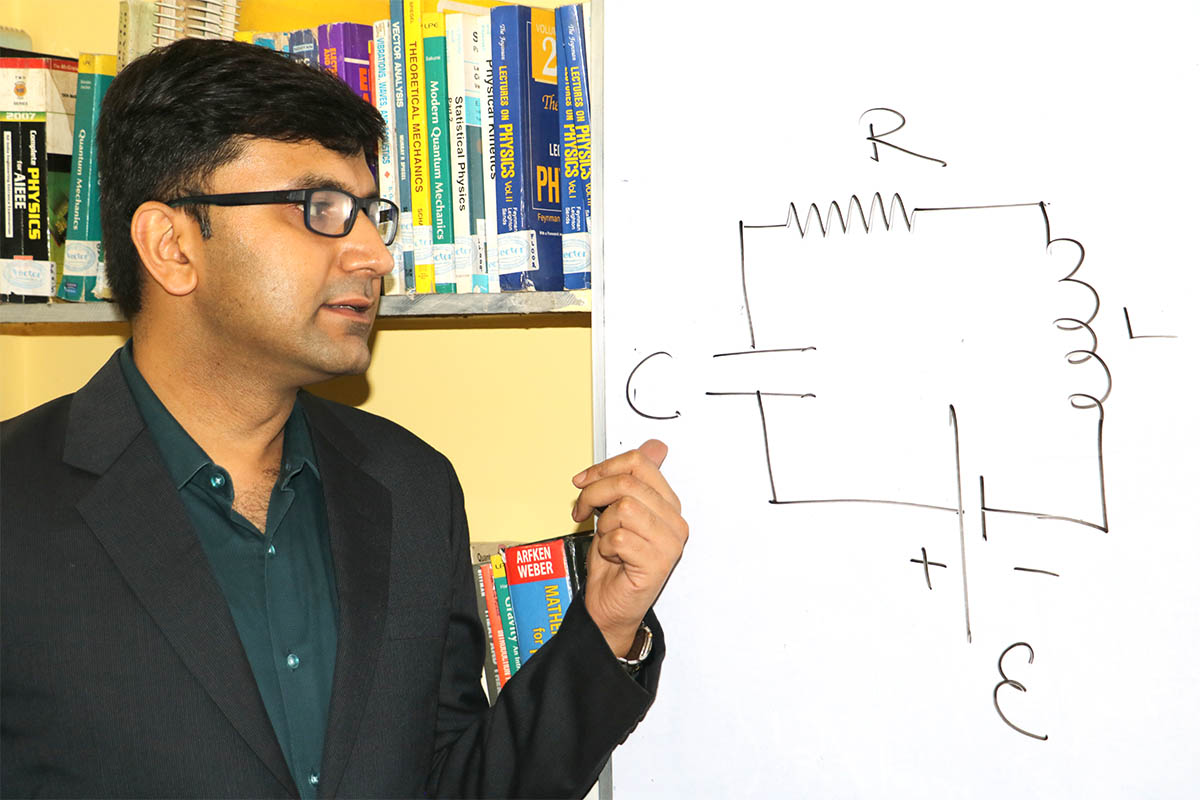
Co-founder, Faculty and Mentor at Vector Institute of Physics
(Ex-Intel Corporation | Ph.D. Physics, University of Illinois | M.Sc. Physics, Indian Institute of Technology Madras | B.Sc. Physics Honors, St. Xavier’s College (Autonomous), University of Calcutta | ISC/ICSE from Vivekananda Mission School). For an overview of his research, please click on the Google Scholar link below.
Dr. Sagnik Chakraborty (Ph.D.), completed his schooling from Vivekananda Mission School, and was in the top 1% of his graduating class. He attained his Bachelors’ in Physics (B.Sc. Physics Honors) from St. Xavier’s College (Autonomous), University of Calcutta followed by Masters’ in Physics (M.Sc. Physics) from Indian Institute of Technology Madras (IIT Madras) with his master’s thesis project focusing on modeling phenomenon in high energy physics such as decays and resonances employing programming in C++ and root. He was a Junior Research Fellow at Saha Institute of Nuclear Physics where his project focused on data analysis from Large Hadron Collider CMS experiment.
He was awarded the doctorate in physics (Ph.D. Physics) from the University of Illinois, USA. During his Ph.D. thesis research, Dr. Chakraborty led interdisciplinary and collaborative research employing strong foundation of techniques and analysis methodologies in Physics to address a central question in the life sciences. He developed a novel fluorescence-based approach to study DNA dynamics and fluctuations that are central for its interactions with proteins. He has demonstrated expertise in the following technical skills: Fluorescence Lifetime Spectroscopy, Time-Correlated-Single-Photon-Counting, Ultrafast Laser Temperature-Jump (T-jump) Spectroscopy, Steady State Fluorescence Spectroscopy, Fluorescence Resonant Energy Transfer (FRET), Maximum Entropy Analysis Algorithm, Molecular Dynamics Simulations, Transmission Electron Microscopy, Scanning Electron Microscopy. He has presented his original research results in numerous prestigious international conferences including annual meetings of American Physical Society, Biophysical Society, Gibbs conference on Bio-thermodynamics and Physics Fest at University of Illinois Chicago. Dr. Chakraborty was selected to participate in the Center for Physics of Living Cells workshop at University of Illinois at Urbana-Champaign where he collaborated with Physicists around the globe in this National Science Foundation funded Frontiers in Physics program. Dr. Chakraborty’s research has featured in multiple journals including Nucleic Acids Research (Oxford University Press), which is regarded as one of the best high impact research journals by the scientific community and Biophysical Journal. Multiple articles are in preparation using the techniques and research methodology established by Dr. Chakraborty.
He is the recipient of numerous awards and fellowships including Debesh Kamal scholarship for research abroad awarded by Ramakrishna Mission Institute of Culture, CSIR fellowship and lectureship for his All India Rank: 55 (CSIR-NET) in Physics awarded by the Council for Scientific and Industrial Research, MHRD, Government of India, Institute fellowship awarded by Saha Institute of Nuclear Physics for pursuing research in the Institute, Graduate student travel award for his research presentations in American Physical Society and Biophysical Society meetings awarded by College of Liberal Arts and Sciences, University of Illinois at Chicago.
After completion of his Ph.D., Dr. Chakraborty contributed to research and technology development at Intel Corporation, where he owned and led the development, stability, improvement, maintenance, and performance functions of extremely advanced tools in semiconductor area. He has used his expertise in experimental physics, optics, statistical analysis acquired during Ph.D. to troubleshoot issues gating product yield and solve them efficiently, driven by solid models.
Dr. Chakraborty has led classroom and lab based undergraduate Physics courses with excellent feedback from students. He has tutored undergraduate students from introductory to advanced levels in Physics facilitating detailed understanding of underlying concepts to solve problems. He has coordinated science workshops in Department of Physics, Indian Institute of Technology Madras, led lab tours for high school students and has been a contributing member of Science Communication workshop, ComSciCon Chicago.
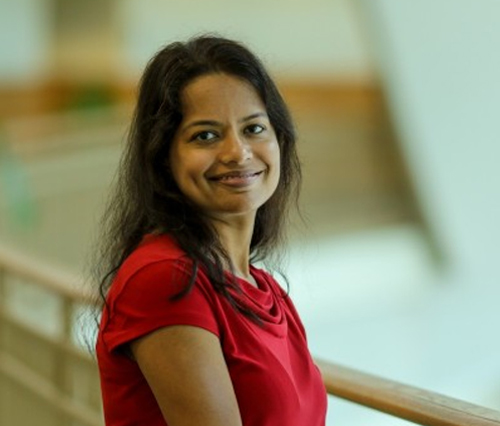
Faculty and Mentor at Vector Institute of Physics
(Visiting Assistant Professor at Southwestern University, Texas, USA Senior research associate, Baylor University Visiting research assistant professor, University of Illinois at Chicago Postdoctoral Associate, Columbia University Ph.D. Chemistry and Chemical Biology, Cornell University M.Sc. Chemistry, Indian Institute of Technology Bombay B.Sc. Chemistry Honors, Lady Brabourne College, University of Calcutta). For an overview of her research, please click on the Google Scholar link below.
Dr. Debamita Paul has a distinguished academic background that started from her schooling from Salt Lake school. She received a B.Sc. in Chemistry from Lady Brabourne College at Calcutta University and a M.Sc. in inorganic chemistry from the Indian Institute of Technology, Bombay. She later obtained her Ph.D. in Chemistry from Cornell University and conducted research at Columbia University. After that she joined University of Illinois at Chicago as a visiting research assistant professor. Later she worked as a research associate at Baylor University. Apart from being a mentor at Vector Institute of Physics Dr. Paul currently serves as a visiting assistant professor at Southwestern University at Austin, USA.
Dr. Paul’s area of research includes DNA damage and repair, structure-based drug designing and mechanistic enzymology. Her body of work includes eleven peer-reviewed papers, an impressive level of production for a researcher in her field. Several of Dr. Paul’s articles have appeared in high-impact journals such as. PNAS, NAR, Biochemistry, DNA repair. She has received over 550 citations for her work thus far, demonstrating that there exists widespread scientific interest in her findings and ideas.
Dr. Paul’s research led to the development of multiple patents. Her structure-based drug designing project led to the potential drug molecule against type II diabetes and obesity that has been shown to be effective in phase II clinical trials, prompting the multi-billion-dollar acquisition of this drug by a major pharmaceutical company. The research carried out by Dr. Paul has been recognized in the form of multiple grants from the National Institutes of Health (NIH) and National Science Foundation (NSF).
In addition to her outstanding academic career Dr. Paul enjoys music, dancing, cooking, reading and traveling around the world.
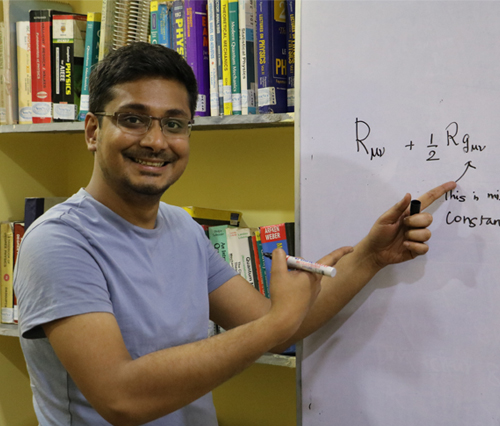
Faculty and Mentor at Vector Institute of Physics
(Research Scientist at Indian Statistical Institute, Kolkata | Postdoctoral Scholar at Freie Universität, Berlin | Ph.D. Physics, University of California, Davis | M.S. Physics, University of Illinois at Chicago | B.E. Civil Engineering, Jadavpur University | ISC/ICSE from La Martiniere for Boys School, Kolkata). For an overview of his research, please click on the Google Scholar link below.
Dr. Anirudha Menon (Ph.D.), completed his schooling from La Martiniere for Boys School, Kolkata. He attained his bachelor’s in engineering (B.E. Civil Engineering) from Jadavpur University. Upon graduation, he decided to change his field of study and realized that Physics was his passion. He went on to obtain a master’s in physics (M.S. Physics) from the University of Illinois at Chicago (USA). His master’s research project focused on cholesterol transport in lipid membranes, wherein he modelled such systems using theoretical and numerical tools. This work was done in Collaboration with Prof. Ursula Perez-Salas and Prof. Luis Nasser.
After the completion of his M.S., Dr. Menon was awarded a doctorate in physics (Ph.D. Physics) by the University of California, Davis (USA). His Ph.D. thesis research project focused on the characterization of the properties of topological materials using mathematical and numerical techniques, under the supervision of Prof. Rajiv R. P. Singh.
On the one hand, he focused on the effect of light-matter interaction on the Dirac matter candidate multi-Weyl semimetals (mWSMs) and its impact on the thermal Hall conductivity and Nernst conductivity. He developed the mathematical formalism for Floquet-Matsubara theory and applied it to the continuum models of mWSMs leading to analytical results for the Hall tensor. He further studied the Landau quantized phase and the Chiral Magnetic effect in mWSM lattice model systems using numerical methods of Brillouin Zone integration.
On the other hand, he explored the entanglement properties of the U(1) quantum spin liquid candidate S=½ Ising pyrochlore in a random transverse field. Using computational methods such as exact diagonalization, the Lanczos algorithm, and the numerical linked cluster expansion, he was able to extract the phase diagram of such materials using a gamut of physical observables like von-Neuman entanglement entropy, bandwidth, Ising correlation, and magnetization.
Along with these two directions of research, Dr. Menon and Prof. Singh collaborated with experimental physicists (Alireza Ghasemi, Prof. Collin Broholm, and Prof. R. J. Cava) at John’s Hopkins University and Princeton University in the numerical modelling of the spin liquid candidate NaBaYb(BO3)2 using an effective spin ½ Heisenberg and Dipolar Hamiltonian for the low-energy states. Using experimental data and the numerical linked cluster expansion, he was able to determine the exchange and dipolar energies to values which are in close agreement with those obtained from neutron scattering experiments.
During his Ph.D., Dr. Menon presented his research in highly prestigious, international conferences and summer schools such as Correlated20 (2020, UCSB invite only 2-month program), the Princeton Summer School on Condensed Matter Physics (2019, 2020), and the Conference on Highly Frustrated Magnetism (HFM 2018).
Dr. Menon published his original research results in highly respected, high-impact, internationally renowned, peer-reviewed journals such as Physical Review B, Journal of Physics C: Condensed Matter, and Journal of Physics D: Applied Physics. He has been invited to join the esteemed editorial board of: Journal of Material Science and Technology Research.
Dr. Menon is the recipient of the Paul M. Raccah award for obtaining the highest score on the Ph.D. Qualifying examination conducted by the department of Physics at the University of Illinois at Chicago. Further, he is the recipient of the physics departmental travel award in 2019 granted by the University of California, Davis.
Upon the completion of his Ph.D., Dr. Menon was offered several postdoctoral positions including a prestigious offer to work with Prof. Alexander Balatsky and his group at the University of Stockholm. He pursued a joint postdoctoral appointment at the Freie Universität, Berlin, and the Helmholtz-Zentrum Labs under the guidance of Prof. Johannes Reuther. Post this appointment, he worked as a research scientist at the Indian Statistical Institute, Kolkata, in collaboration with Prof. Banasri Basu.
Dr. Menon has more than ten years’ worth of teaching experience, having taught both in India and abroad in the United States. Post his graduation, he was involved with tutoring high school students in the areas of Physics and Mathematics for board and competitive examinations. In Chicago, Dr. Menon was a teaching assistant at the Physics department at the University of Illinois at Chicago, where he taught basic physics to undergraduate non-science majors. In Davis, he held a similar position up to 2017, teaching physics to both engineering and liberal arts majors. In mid-2017, he was offered a role as a lecturer at the University of California, Davis. In his stint as a lecturer, Dr. Menon taught calculus-based classical mechanics, electromagnetism, quantum mechanics, and special relativity to engineering majors in their freshman and sophomore years. In addition, he continued to lecture on basic physics to liberal arts majors.
In his spare time, Dr. Menon likes to play chess and poker at an amateur level. He has participated in several chess and poker tournaments over the years, both in India and in the U.S., and has won a number of prizes. He has a peak Lichess blitz chess rating of 2240. Dr. Menon is an avid lover of music, and he enjoys playing guitar and keyboards. In the past, he has also invested time in philately and numismatics.










